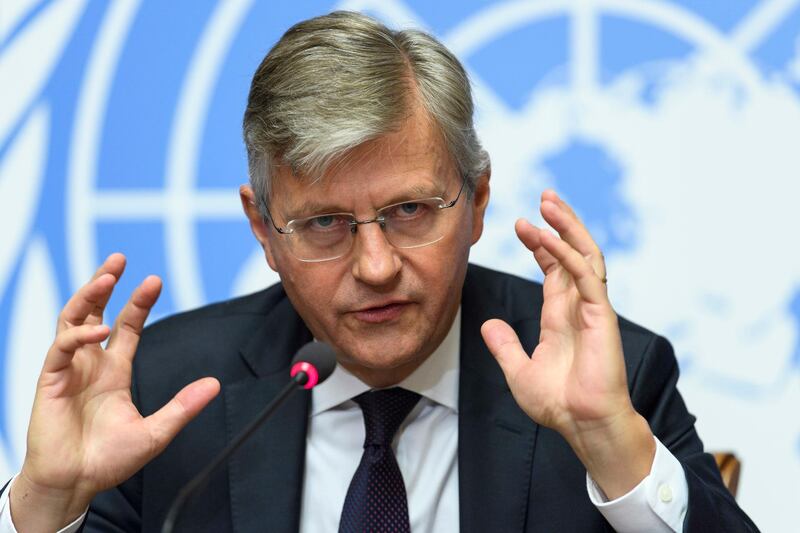THE UN Security Council has welcomed a new funding framework for the Blue Helmets in Africa that is designed to make up for a budget shortfall after developed nations led by the US announced cuts.
The peacekeeping troops that deploy under the UN banner in African conflicts will instead gain an increase in funding from the African Union.
Ambassadors from the UN Security Council who held a two day summit on Thursday and Friday at the African Union headquarters in Addis Abba, Ethiopia heard details of the plan to generate 25 per cent of the costs of the missions from within the continent. “We have concrete proposals to make,” said Tekeda Alemu, Ethiopia’s permanent representative to the UN. "At a time when a current security challenges are growing in scale and complexity it is important that the councils strengthen their cooperation and joint work."
_______________
Read more:
[ The world cannot afford not to have a UN ]
[ Syria war crimes prosecutor vows justice for atrocities ]
_______________
There have been fears that plans to slash $600 million from the $7.87 billion peacekeeping budget would undermine peacekeeping efforts in Africa. Washington has indicated it will reduce its contributions to the UN overall by $1 billion in the next budget. The UN Peacekeeping department currently undertakes 16 missions, nine in Africa.
“Effective African capacity for peacekeeping is increasingly important, both in the context of our collective response to international peace and security challenges and for stability on the African continent,” warned a report for the meeting from Antonio Guterres, the UN Secretary General.
The peacekeeping department has historically been plagued by funding scandals. Scarce resources have been blamed for failures to monitor and restrict abuses carried out by troops deployed wearing the organisations famous blue emblem.
The African Union has stepped into the breach to secure the future of the missions within its member states.
The head of the peacekeeping department acknowledge the budget pressure but said it was not affecting efforts to address the scandals that have been exposed.
_______________
Read more: United Nations warns that young Africans are becoming radicalised
_______________
“We have increasing cost pressure on our budget. We seek a measure of greater cost effectiveness,” Jean-Pierre Lacroix said on Friday. But he added there was no threat to efforts to tackle problems like sexual abuse allegations.
“We are victims rights advocates We need to turn the page on sexual exploitation,” said Lacriox.
Diplomats warned that the additional African resources must be accompanied by a strong commitment to fundamental principles.
“Security Council strongly supported AU decision to fund 25% of [peacekeeping] costs but cautioned the UN that standards of accountability, conduct, human rights must be met,” said Jonathan Allen, the deputy British representative on the Security Council.
The French peacekeeping undersecretary general also said there would be a shift of emphasis within the long-standing operation in Lebanon. The mandate for UNFIL was recently extended with a request that it perform more visible patrolling on the Lebanon border alongside a demand to report more pro-actively any violations to the UNSC.
Lacroix also confirmed that 150 Nepali troops would be deployed to Libya to protect the UN delegation there in the coming weeks.
The meeting on Friday in the Ethiopian capital also addressed UN reform and security issues in areas such as South Sudan and Mali.
Thierry Vircoulon, an analyst with the International Crisis Group, warned that some of the UN-authorised missions are in longer term doubt, both from cuts and shifts in global politics. In particular the peace keeping mission in Somalia was vulnerable to a loss of EU funds.
“The level of EU support to AMISOM is controversial in Brussels where British officials have fought long and hard against a French desire to redirect European spending towards the West African Sahel,” he wrote. “Even without the UK leaving the Union, support for AMISOM would have been under great pressure.”






